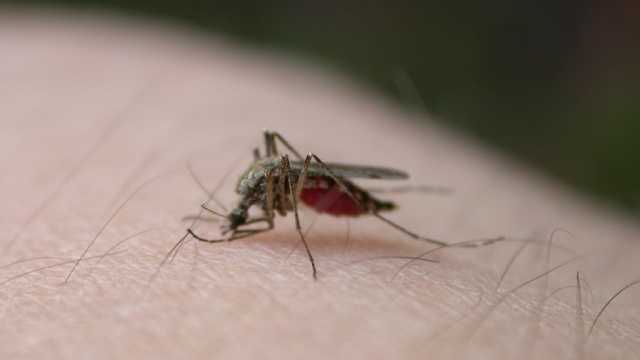Eastern equine encephalitis virus has been detected in mosquitoes in Massachusetts for the first time in 2024, according to the Massachusetts Department of Public Health. EEE was confirmed in mosquito samples collected on June 30 in Carver in Plymouth County, DPH said. No human or animal cases of EEE have been detected so far this year. The finding prompted officials to increase the risk level of EEE to moderate in the communities of Carver, Kingston, Middleborough, Plymouth, Plympton and Wareham. “The last EEE outbreak cycle in Massachusetts occurred in 2019-2020, and since then, there have been no human cases of EEE reported in the state,” said Public Health Commissioner Dr. Robbie Goldstein. EEE is a rare but serious and potentially fatal disease that can affect people of all ages. EEE is generally spread to humans through the bite of an infected mosquito.In 2019, there were 12 human cases of EEE in Massachusetts, with six deaths; in 2020, there were five human cases and one death. There were no human cases of EEE in Massachusetts in 2021, 2022 or 2023.On Tuesday, Massachusetts health officials said West Nile virus was detected in a mosquito sample collected in Quincy. It was the first time the virus was found in the state in 2024. Health officials urge residents and visitors to apply insect repellent when outside, be aware of peak mosquito hours — dusk to dawn and wear long sleeves, long pants and socks when outside.More information, including all West Nile virus and EEE positive results, can be found on the Arbovirus Surveillance Information webpage at Mosquito-borne Diseases | Mass.gov, which is updated daily, or by calling the DPH Division of Epidemiology at 617-983-6800.
Eastern equine encephalitis virus has been detected in mosquitoes in Massachusetts for the first time in 2024, according to the Massachusetts Department of Public Health.
EEE was confirmed in mosquito samples collected on June 30 in Carver in Plymouth County, DPH said.
No human or animal cases of EEE have been detected so far this year.
The finding prompted officials to increase the risk level of EEE to moderate in the communities of Carver, Kingston, Middleborough, Plymouth, Plympton and Wareham.
“The last EEE outbreak cycle in Massachusetts occurred in 2019-2020, and since then, there have been no human cases of EEE reported in the state,” said Public Health Commissioner Dr. Robbie Goldstein.
EEE is a rare but serious and potentially fatal disease that can affect people of all ages. EEE is generally spread to humans through the bite of an infected mosquito.
In 2019, there were 12 human cases of EEE in Massachusetts, with six deaths; in 2020, there were five human cases and one death. There were no human cases of EEE in Massachusetts in 2021, 2022 or 2023.
On Tuesday, Massachusetts health officials said West Nile virus was detected in a mosquito sample collected in Quincy. It was the first time the virus was found in the state in 2024.
Health officials urge residents and visitors to apply insect repellent when outside, be aware of peak mosquito hours — dusk to dawn and wear long sleeves, long pants and socks when outside.
More information, including all West Nile virus and EEE positive results, can be found on the Arbovirus Surveillance Information webpage at Mosquito-borne Diseases | Mass.gov, which is updated daily, or by calling the DPH Division of Epidemiology at 617-983-6800.
#Mosquitoes #EEE #Massachusetts #time,
#Mosquitoes #EEE #Massachusetts #time
